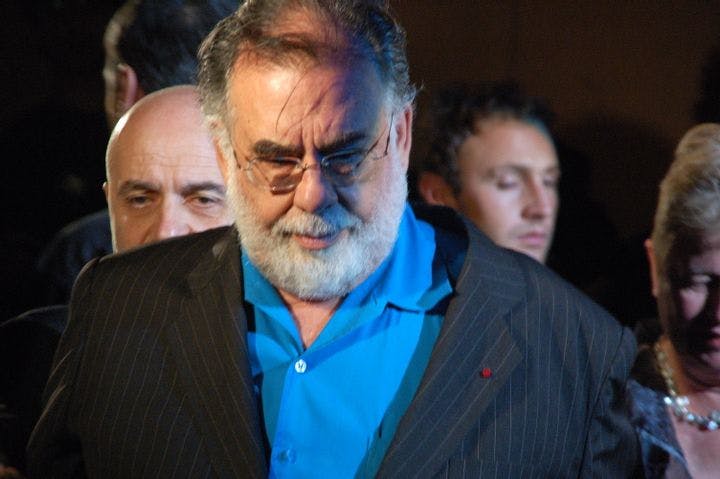Spring 2009
Mr. Wilson, It's Only Business
– Robert Litwak
Robert Litwak on the Godfather Doctrine.
George Kennan. Henry Kissinger. Michael Corleone? Yes, at this critical historical juncture, the fictional antihero is making a foreign-policy offer that two specialists in the field believe we can’t refuse. The Godfather’s “unlikely wisdom” for our challenging times—as a new president attempts to preserve America’s global standing in the face of war, economic crisis, and rising great powers—is elucidated in this funny, smart book, an expanded version of a widely read article John C. Hulsman and A. Wess Mitchell published last year. The Godfather Doctrine creatively transposes the iconic 1972 film that director Francis Ford Coppola intended as an allegory of American capitalism onto contemporary geopolitics.
The parable unfolds with the attempted hit on Don Vito Corleone, head of New York City’s paramount organized-crime family, by Virgil “the Turk” Sollozzo. The young Turk turns to violence after the old-school Don rejects his proposal to expand the family’s business into the lucrative but dirty drug trade. With the wounded Don out of action, the Corleone sons respond to this catalytic event—a frontal assault on the existing order by a “rogue power”—with competing strategies, each emblematic of a major American foreign-policy approach.
Adopted son and consigliere Tom Hagen—the liberal institutionalist—does not recognize the magnitude of the threat posed by the Turk and urges the illusory course of dialogue and “institutionalized restraint” to preserve the Mafia’s existing order, “a kind of Sicilian Bretton Woods” that benefited all the families. Hotheaded Sonny Corleone—the neoconservative—recognizes the Turk as an “existential threat” and overrules Tom to initiate military action against Sollozzo and his allies without the legitimizing imprimatur of the other crime families. Sonny’s recklessness, which the authors liken to the Bush administration’s heedless charge into Iraq, triggers counterbalancing moves by the other Mafia families to check the Corleones’ unrestrained power. After Sonny falls victim to his own “gangland free-for-all,” his younger brother Michael—the realist—takes up the reins of family power and, comprehending the forces of systemic change represented by the Turk, skillfully adapts to the new reality through a strategy combining Tom’s carrots and Sonny’s sticks.
Through this inspired metaphor, Hulsman and Mitchell carry out a cold, intellectual hit on Wilsonianism—the foreign-policy school whose core idea is that international peace can be achieved through the spread of democratic governments to states around the world. This motivating belief has spawned contending Democratic (liberal institutionalist) and Republican (neoconservative) versions. Few would challenge the authors’ assertion that neoconservatism is bankrupt: Its champions have been mugged by reality in Iraq; the goal of “ending tyranny” set out in George W. Bush’s second inaugural address is widely derided as vacuous utopianism.
Yet liberal institutionalists are sure to dispute The Godfather Doctrine’s analysis and policy prescriptions. They point to the failure of realism to account for the dog that did not bark in the 1990s: When the United States emerged from the Cold War as the sole remaining superpower, no countervailing coalition of states stepped forward to balance American power, as realist theory would have predicted. Political scientist John Ikenberry has convincingly argued that America went unchallenged because its hyperpower was channeled through international institutions, which made that power legitimate and less threatening to other states. Liberal institutionalists now argue that America must return to this winning strategy. Hence, their response to an increasingly autocratic Russia’s assertion of its interests in Georgia is to focus not on isolating and containing Russia, as the realists advocate, but on redoubling efforts to integrate it into the international order.
Americans do not hold the realist tenet that countries do not have friends, only interests. For Americans, foreign policy is not “just business.”
In one key respect, the authors acknowledge the limits of their metaphor. Americans do not hold to the realist tenet that countries do not have friends, only interests. In the 1970s, Kissinger, the balance-of-power realist, found that the balance he sought abroad did not balance at home. While Kissinger strove to transform the United States’ Cold War relationship with the Soviet Union through détente diplomacy, the American public would not rally behind a realpolitik seemingly divorced from concerns about human rights and the promotion, more broadly, of American values. For Americans, foreign policy is not “just business.”
American foreign policy can be thought of as an ongoing conversation between Wilson and Kissinger. In that dialogue, the choice between realism and liberal institutionalism is a false one. Policymakers can strive at best to manage, not resolve, the inherent tension between these approaches. And indeed, managing that tension is at the heart of the foreign-policy challenges facing our new president.
* * *
Robert Litwak is director of international security studies at the Woodrow Wilson Center and the author of Regime Change: U.S. Strategy Through the Prism of 9/11 (2007).
Reviewed: The Godfather Doctrine: A Foreign Policy Parable by John C. Hulsman and A. Wess Mitchell, Princeton University Press, 85 pp, 2009.
Photo courtesy of Flickr/Ozgur Poyrazoglu
Up next in this issue
